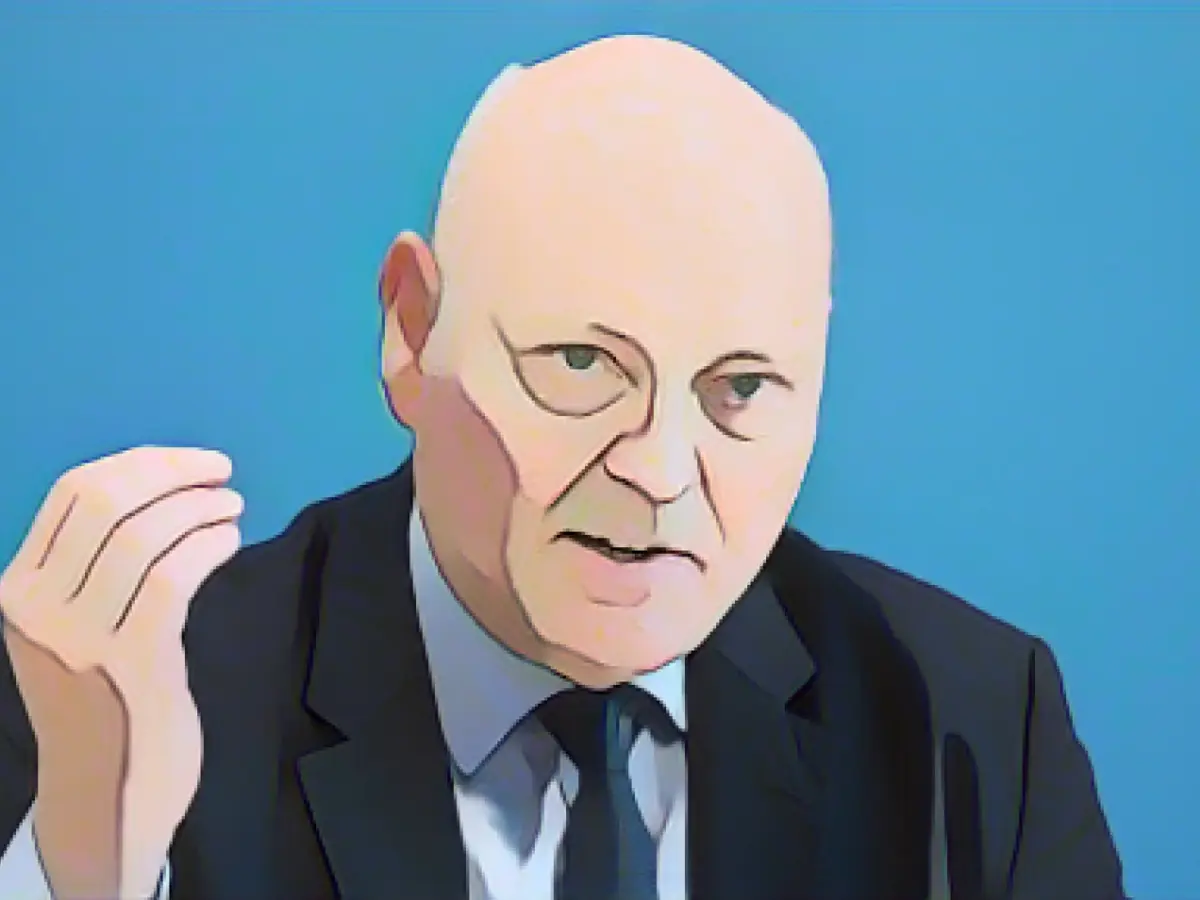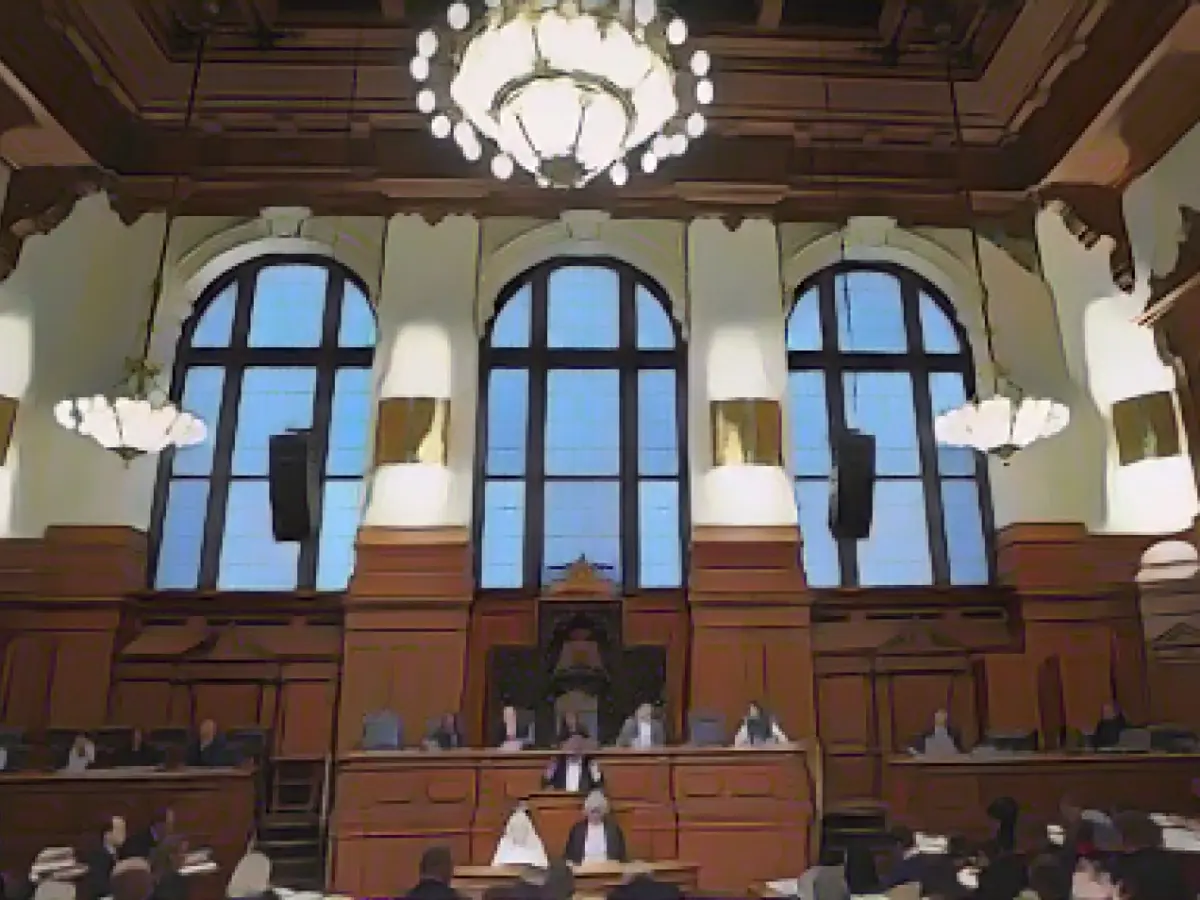Bringing Up the Budget Blip: A Financial Expert Examines the Risks of Slashing Social Spending
The Issue at Hand
As Finance Minister Lindner announces a shortfall of 17 billion in the 2024 budget, the German government grapples with difficult choices. The CDU/CSU, FDP, and perhaps some economists argue for trimming social spending to make ends meet. However, Achim Truger, a seasoned financial expert, contends that cutting back on crucial social programs would trigger substantial social issues and ravage the economy.
Why Social Spending Is a Pillar of our Stability
Truger pinpoints the importance of maintaining the current level of investment in projects like the Climate and Transformation Fund and the Economic Stabilization Fund. These funds contribute significantly to preventing an economy-wide downturn. By slashing social spending, the government would essentially impose a second austerity measure, further jeopardizing the already fragile situation. The consequences include a higher likelihood of entering a recession and a potential drop in economic growth by 0.9 percent[1].
Consider the Consequences of Cuts to Social Programs
Proposing to axe subsidies on climate-damaging practices is undoubtedly appealing for environmental reasons. However, the timing cannot be off. Trimming social spending without adequately addressing alternative sources would compound the already strained economy, worsening the situation for the most vulnerable in society. These cuts would aggravate poverty levels and escalate the need for basic income support[1].
Extending the Debate
Veronika Grimm, an associate of Truger on the panel of economic experts, has voiced her support for debating cuts to pensions. Her endorsement paves the way for discussions regarding policies like the pension age from 63 or mothers' pension. While such conversations are warranted, Grimm advises caution against executing them in light of the current budget predicament and its potential consequences on the most impoverished segments of the population.
Curbing Climate-Friendly Investments: A Misguided Approach
Despite calls to cut subsidies related to statutory pension insurance schemes, experts like Truger question the implications. Reducing the federal subsidy would drive a rise in contributions, posing challenges for the average citizen[1].
Examining Other Options
In Truger's opinion, the looming financial strain calls for innovative solutions such as the introduction of a "climate soli," a new solidarity tax that could finance climate projects[1]. Alternatively, energy taxes or the CO2 price could be raised to cushion the ecological impact while facing economic consequences. Nonetheless, Truger emphasizes the need to prioritize investments, which will decisively pay-off in the long term.
Looking Ahead
The current budget crunch mandates careful examination of the financial landscape and the respective duties of our elected officials. When considering amendments to social programs, we must not overshadow their pivotal role in providing stability and security for Germans. Instead, a balanced approach that prioritizes sustainable investments, reduces environmentally damaging subsidies, and safeguards the most vulnerable in society remains the most promising path forward.
Intriguing Insights
In addition to Truger's perspectives, further analysis reveals some intriguing insights:
- Job market vulnerabilities: An Economic Policy Institute (EPI) report suggests that extending tax cuts for the affluent and corporations while simultaneously decimating social supports could generate significant economic pain for working families[2]. By fueling deficits, these policies could engender upward pressure on inflation and interest rates, weakening the job market and dampening overall growth[2][4].
- The price of poverty: Proposed cuts to vital support programs like Medicaid and SNAP would affect millions of families negatively. Inflicting such damage on the economic security of the working class could impede long-term productivity and hamper the growth potential of the overall workforce[4].
- Growing economic instability: Threats to social insurance and income support programs could deprive future generations of vital health and developmental resources, ultimately jeopardizing the nation’s economic stability in the long term[4].
As we embark on charting a solution, consider these insights to promote an informed and balanced approach to the budget debate[2][4].
Read Also
Sources
[1] Achim Truger: Cutting social spending is detrimental to the economy, January 3, 2024. [2] Economic Policy Institute (EPI): Embracing austerity: hurt families and slow growth, January 2024. [3] Loretta J. Mester: Does reducing budget deficits boost economic growth?, speech delivered at the Federal Reserve Bank of Cleveland, November 7, 2013. [4] Joshua Bivens, Heidi Shierholz, and David Cooper: Austerity Bites, April 5, 2012.








